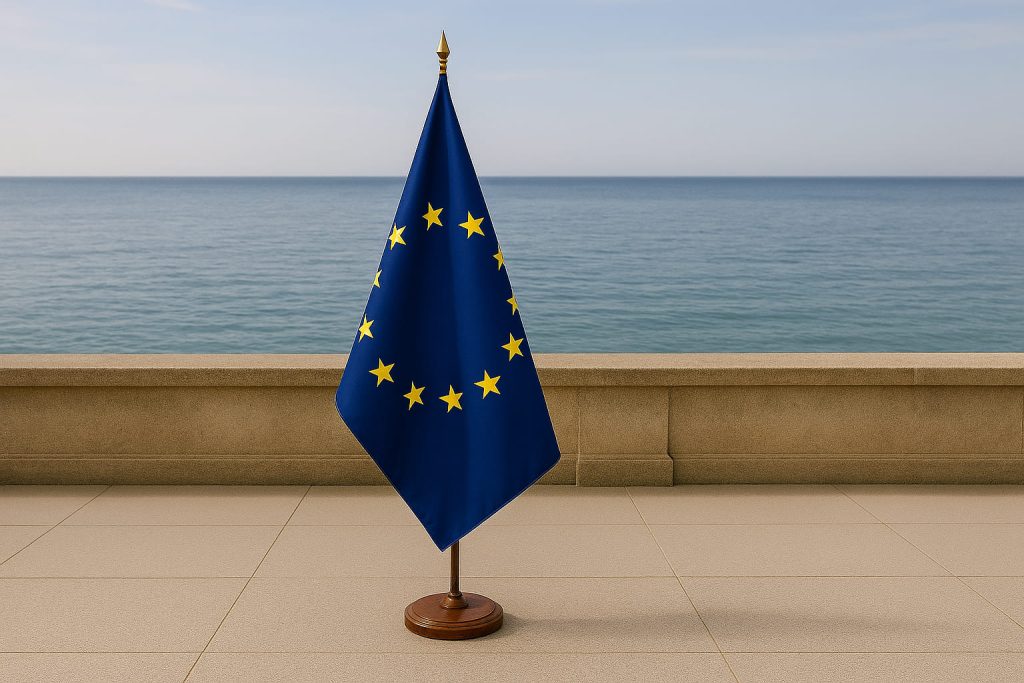[FR] 2019, the year for us, Europeans

A gloomy mood prevails among pro-European circles at the start of January. Reassuring exchanges of New Year’s greetings do little to dispel fears about the year ahead. The year that has just ended did not bring the progress that France had hoped to see before the European elections in May. The window of opportunity opened by Emmanuel Macron’s election in 2017 began to close four months later with the German parliamentary elections, and has continued to close since then with elections in Italy, Hungary, Sweden and elsewhere, marking a year of rising nationalism in 2018.
In this context, the issues on the table for European legislators will have to wait for better days. The ‘Gafa tax’, dear to Paris, is likely to remain a French initiative. Savers’ deposits are still waiting for a European guarantee. On the migration front, the Dublin Regulation, rightly criticised by the countries of first entry for asylum seekers, has still not been reformed, as dramatically illustrated by the misadventures of NGO ships in the Mediterranean. The ‘eurozone budget’ remains an accepted expression with no real content. Only the recent vote to regulate posted work for lorry drivers and the strengthening of European civil protection have brightened up a rather dull legislative record for 2018, compared with Macron’s initial lofty ambitions.
While the French president’s political capital has been seriously undermined at home, there are no other driving forces to turn to at present. Jean-Claude Juncker’s Commission is coming to the end of its term. Germany, which has entered the post-Merkel era, is managing its internal tensions and tempering French enthusiasm. Matteo Salvini’s Italy is revelling in its new role as Europe’s spoilsport. The United Kingdom is completely absorbed by its increasingly ambiguous upcoming exit. In Madrid, Pedro Sánchez’s government cannot lead Europe, as it is too fragile, like so many other coalitions currently in power on the continent. And, of course, we cannot expect any positive developments from Orbán’s Hungary or Kaczyński’s Poland. Not to mention the Romanian presidency, which has been discredited even before it has begun.
So the pro-Europeans are keeping a low profile. The 20th anniversary of the transition to the euro, the most remarkable feat of integration, is conspicuous by its discretion. Nothing is planned at the European Central Bank. In this gloomy start to 2019, no one dares to play Ode to Joy. Will the European anthem be played for the other big anniversary of the year, the 30th anniversary of the fall of the Berlin Wall? The tune sounded right then, in the jubilation of regained freedom. We would also have happily hummed it when the first Erasmus students set off. Or when we marvelled with amusement at no longer being checked at the border and no longer having to change currencies. But over the years, this joy has faded and become commonplace, when it has not been politically silenced and stifled.
Joy has even turned to mistrust: in the face of borders deemed too open, endless enlargements and unfair competition. Europeans are singing the anthem of fear: fear of migrants, fear of China, fear of Trump, fear of Putin, fear of terrorism, fear of being manipulated. Fear of ageing, and in some small countries, fear of disappearing. Fear of the predicted economic slowdown, fear of losing social protection, fear of the demands of the ecological transition. But now they are also afraid of leaving the European Union for an adventure considered too risky, as evidenced by the ongoing Brexit process. Although it has already been widely overused, the slogan for a ‘Europe that protects’ will be repeated again during the upcoming European election campaign, as if to convince ourselves of its truth.
However, while danger unites, it also paralyses. Europe’s greatest fear is of itself. Of existing and asserting itself. The Twenty-Seven surprised themselves by remaining united in the face of London. By becoming, despite themselves, Donald Trump’s adversary. In fact, the European Union disturbs and thwarts the ambitions of other powers, but still refuses to draw the consequences and define a collective destiny for itself.
To enter 2019 with confidence and approach next May’s elections with greater serenity, the Union must spell out the values and interests that distinguish it from other continents. Its added value cannot be reduced to co-financing or economies of scale. It is more geopolitical than ever. It lies in its ability to articulate to the rest of the world a powerful and determined – and joyful – ‘We, Europeans’.




